

Co-written by Ian Miles Cheong and Christopher Scott.
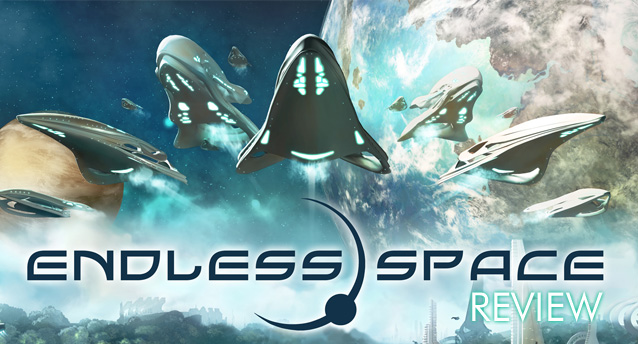
Endless Space was a bit of a surprise. I had never heard of it nor its small team before, but Steam teased me with pop-ups and store page banners. For 30 dollars it was tempting me with a new strategy game, a genre I am weak to resist, and operatic clashes in space. I caved to my mistress, and though I was worried the actual game wouldn't live up to the pretty imagery and feature promises, that surprise turned out to be quite pleasant.
In case you’re wondering what the game’s all about, Endless Space is “4X” game set in space, and it has a lot in common with the Master of Orion titles. It allows players to create a galactic empire that’ll either stand the test of time or fall in what Alastair Reynolds might refer to as the turnover of civilizations.
As a nascent space-faring civilization, you’ll have the opportunity to cultivate your empire through a variety of ways and means in the game’s research tree. But before building a civilization, it helps to have an idea of what you plan to do with it and how you intend to conquer the galaxy. I winged it in some of my earlier playthroughs of Endless Space and ended up being obliterated by my opponents—both human and AI for being ill prepared and for diversifying my research a little too much. It goes without saying that the game can be exceedingly brutal to new and unprepared players. It took me several sessions before I got the hang of things.
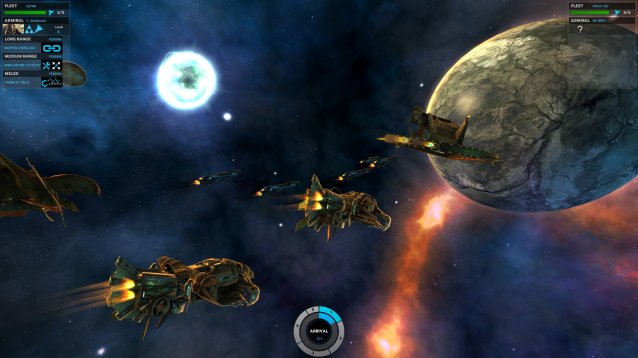
The meat and potatoes of the game will be familiar to anyone who has played a 4X strategy game before. You research technology from a large, categorized tree. You manage your systems and planets with development projects. You build fleets, colonize the reaches of space, engage in diplomacy, and wage war. But Endless Space boasts several features and mechanics that set it apart from its competition, and a production value that had me double checking its independent developer status.
The first of which worth mentioning is its interface. The management of an empire should not be a cumbersome affair. The information I need to access should be readily available and easily viewable without having to dive through several menus and constant clicks. Endless Space succeeds in those regards beautifully. It's clean, easy to navigate, and gorgeous to look at, making it one of the best interfaces I've seen in the genre. The status of my empire can be consumed with a single glance, allowing me to focus more on the macro strategy than the micro.
But the game adds more than just nice menus to the mix. Instead of directly controlling my ships in battle, I and my enemy choose fleet actions for each phase of combat—outer, middle, and melee—before the munitions start flying. These come in the visual form of cards and of different categories, such as Offense, Defense, Engineer, Sabotage, and Tactics, and in addition their bonuses or debuffs for that phase, they will block the effects of a different category. A Sabotage card may block the enemy's Engineer card, for example, depriving them of their card's bonus while giving mine a boost.
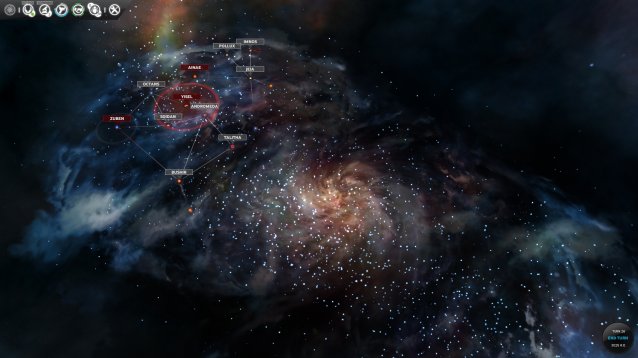
Visually the combat is great, too. The ships, planets, and weaponary are all beautiful to look at. The camera zooms around on its own—though a semi-free option is available with the push of a button—with techniques reminiscent of Battlestar Galactica. And while I was worried about repetition with the total mechanics, it has yet to bore me. Each battle is exciting to watch and emotional as each card is played.
Endless Space also has recruitable heroes, each with their own portraits, backgrounds and strengths. They can be assigned to systems to boost their outputs, or to fleets to strengthen their capabilities. Through use, heroes will level up and earn skill points that can be spent on perks to increase things such as offense, defense, system management and more. These add an extra layer of strategy to the game, as only a few can be recruited and assigned.
Despite those features, I do worry about its lasting appeal. The game does have multiplayer, and I easily become invested in my empire, but the universe it creates may be a little too clean and lacking in personality. Each faction is simply a different bonus or ship design to me, instead of unique peoples. And the galaxy is lacking in interesting events and discoveries that made exploring the space of Galactic Civilizations II so exciting. If core mechanics matter more to you, however, then Endless Space and its small team is absolutely worth supporting.

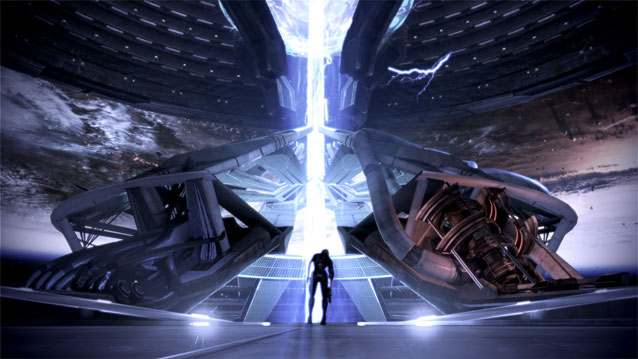


 Below Wiki – Everything you need to know about the game .
Below Wiki – Everything you need to know about the game . Fallout 4: How to Find All Bobblehead Locations
Fallout 4: How to Find All Bobblehead Locations Legend of Zelda: Skyward Sword Walkthrough
Legend of Zelda: Skyward Sword Walkthrough Top 10 Funniest Banter Scenes in Mass Effect 3
Top 10 Funniest Banter Scenes in Mass Effect 3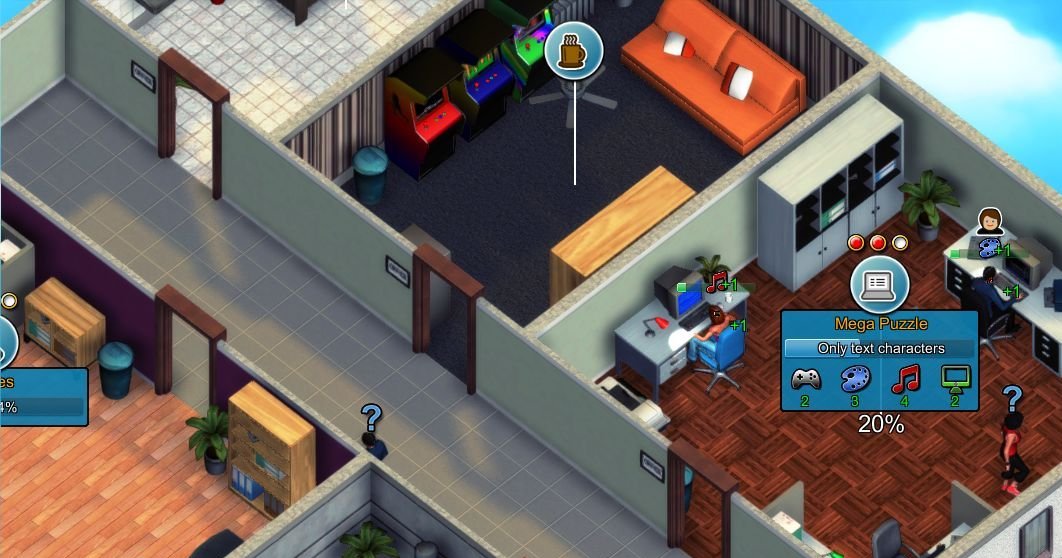 Mad Games Tycoon Legendary Mode: How to Succeed
Mad Games Tycoon Legendary Mode: How to Succeed